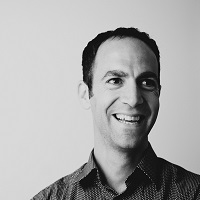The disruptive impact of technology on healthcare

Louise Fox and David Coleiro consider how technology is advancing management of disease and aiding wellness, with health monitors, apps and 3D printing leading the way.


Authors Louise Fox and David Coleiro
Technology's disruptive impact on society is undeniable, from autonomous, auto-pilot cars to our daily reliance on technology at our fingertips. In healthcare, too, technology is revolutionising the system.
Innovation driving new treatment
Consider diabetes treatment, for example. Historically, patients have had to prick themselves up to ten times daily, yet now innovations such as the 'smart contact lens' can continually monitor blood glucose levels in a non-invasive way, transforming point-of-care testing. Collaborative partnerships, bringing Google's experts in miniaturisation and low-power chip design and the significant health experience of Novartis together, have made the smart lens a reality. Such partnerships are producing solutions that previously eluded medical technology companies.
Medical monitoring
Google isn't the only player in this marketplace. Although it might seem like science fiction, there is an implantable device and biochemical sensor in use today, which monitors blood glucose levels and has a slow insulin-release function controlled via a mobile phone. This gives a better user experience, greater compliance and a fundamentally better-managed patient.
Similarly, there are digestible sensors, which routinely and continually monitor bodily systems and transmit performance to other devices, negating the need for monitoring in hospital or at home.
3D printing
3D printing, too, has far-reaching consequences, enabling, for example, the printing of blood vessels and heart tissue, skin to help burns victims, plus cartilage and bone. In addition, the printing of embryonic stem cells could be used to test drugs and help to develop new organs one day.
Healthcare delivery
Historically, the speed of change has been slow, due to the complexity of the medical ecosystem. Research funding is largely aimed at finding cures for diseases that have been incurable, with less money spent on discovering ways to provide care which is less costly, more convenient and of higher quality. Yet process innovations in wearable technology are beginning to change this mould, with growing influence across industries. Google Glass is being used across live surgical procedures and in checking patient and vital sign data. The impact of such developments is only starting to be revealed, with far-reaching consequences likely for the quality and efficiency of medical interventions.
Technology is bringing greater responsibility to patients to manage and monitor their chronic conditions and lifestyle choices through mobile health apps such as Sleepio and WellDoc. This trend is, in turn, changing patient/physician dynamics, creating new relationships, monitoring options and accountability. The US FDA has now approved over 100 health apps and, according to research by PricewaterhouseCoopers, 86% of clinicians believe that mobile apps will play a major role in a physician's practice.
Implications for pharma
In the past, pharma has been late in adopting new technologies, but that is changing. The conversation is moving from health to wellness, and technology is shifting the way patients manage their health.
Drug creation is an expensive business, costing an average of £1.7 billion and 10-15 years in development, from discovery to approval. On top of this, significant investments are made by healthcare systems in drug access and utilisation. The innovations described here (and many others) mean that huge quantities of data from across large patient populations can now be collected, monitored and mined to create patient maps and better match the right drug to the right patient, support better treatment decisions and provide evidence of treatment efficacy.
The opportunities for pharma are clear. Data-driven diagnostics and prescribing will lead to better, more effective treatment decisions, with real-world and real-time feedback received and shared between patients, healthcare professionals, regulators and the industry itself. As a consequence, the patient will be at the centre of the healthcare world, supported by the practical benefits of ensuring compliance with treatment and early alerts/remedial action should their status or symptoms worsen.
Wearable tech and similar innovations will enable data sharing along the patient pathway and could play an integral role in the collection of aggregated patient data to help identify disease trends, predict current and future treatment outcomes, plus diagnoses.
We must take this opportunity to improve patients' lives, to be at the heart of healthcare and to prove our value to society.
About the authors:
Louise Fox is a consultant, and David Coleiro is a director, at Strategic North. Each has over 15 years' experience in the strategic management and development of global brands.
Strategic North is a healthcare brand-building agency that works with clients in the pharmaceutical industry around the globe to build the successful brands of today and tomorrow, grounded in human insight and scientific understanding.
On 14 January 2016, Tim Jones, the founder and programme leader of the Future Agenda, will be presenting on the Future of Health at the evening networking event 'Let's Inspire our Future Thinking', in London. His speech will be based on the Future Agenda report launched in the first week of January. Also speaking will be Charles van Commenee, the former head of UK Athletics and a motivational coach and performance management expert.
Read the first article in this series from Strategic North:











